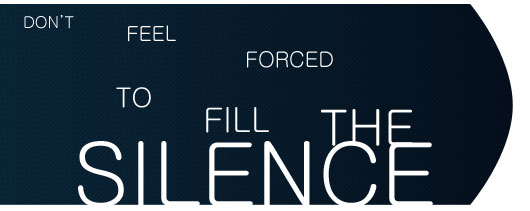Public speaking is one of man’s greatest fears, conjuring up images of solo spotlights and big auditoriums crammed full of faceless stiffs who speak only in the occasional cough.
But what about phone calls as a form of public speaking? They can be just as intimidating, especially when it comes to making the right business call. Plenty of make-it-or-break-it company deals are made over the phone.
Here are five tricks for being a pro at business calls:
1. Start on a positive note.
Ask them about something specific to the area they are in, like maybe the weather in Portland as opposed to your snowy Philadelphia location. Also, even if the phone call is scheduled, it’s good to ask whether it’s still a good time to talk. You want the person on the other end of the call to feel comfortable. Also, it’s great to be direct; ask the person about his or her business and what he or she is looking for pertaining to your role in the possible partnership.
2. Write down notes.
If you’ve met this person briefly before, write down little quirks you can remember. For example, if you gave them a promotional product, mention it: “Hope you’re enjoying that widget.” This personal touch makes the phone call a little easier when breaking the ice. If you haven’t met them before, it’s good to take notes during the call, especially if you will be doing business with them more often. If they mention something personally noteworthy, write it down.
3. Make a list of three points you want to hit.
You can also call this step a “script,” but you don’t want it to appear that way. You don’t want to write word for word what you are going to say. If you simply have a list of points, it keeps you on track and focused so that you’re not wasting anyone’s time, and it doesn’t sound like you are reading the phone book. You can even practice your “script” before the call to make sure you come across as casual and confident.
4. Always know the goal of the call.
Related to item number 3, you want to make sure you know what you want from the call. How can you achieve a particular outcome? What direction should the conversation go? Plus, if you have a direct point to the call, it keeps the conversation brief (for the most part) and makes it less painful on you and the person on the other end.
5. Don’t feel forced to fill the silence.
Silence can be golden…and painful. If you don’t have an answer to a question or if you need a moment to think through something, take the moment. Or if it’s something you might have to consult others with, politely tell the person on the other line that you have to talk it over with the team.
On a side note: similar to public speaking, some callers use a lot of “ums. . .” and “uhhs” when they speak, which can be distracting to the person on the other line. To get rid of this trait, practice reading a magazine article or pretty much anything out loud. It helps your mind get adjusted to sentences without “uhh”s tossed in.
It’s great to send a follow-up email to the person you speak with, to make sure everyone is on the same page. It’s kind of a nice courtesy, like a post-job interview “Thank You” note. Plus, it gets things down in writing, should there be any confusion about what you spoke about if there are actionable items moving forward.
The double-edged sword when it comes to phone calls versus public speaking is that you can’t see who you are talking to. The best advice is to think of business calls as a little like Catholic confession with a priest: tell them what you’ve done and can do, make a deal with the big man upstairs, and then get out of there.

















